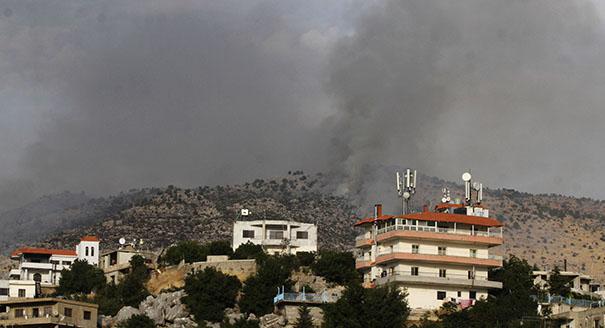What Happened?
On July 27, Hezbollah apparently attempted to retaliate for the death of a party member, ‘Ali Kamel Muhsin, killed in Syria in an Israeli air attack. According to Israeli news reports, the party sought to infiltrate between three and five combatants into the Israeli-occupied Sheb‘a Farms,* when Israeli soldiers fired upon them. Hezbollah denied any infiltration attempt, releasing a statement saying “there has been no clash or shooting on [Hezbollah’s] part in the events of the day ... Rather, it was only one party [that did so], the fearful, anxious and tense enemy.”
Why is It Important?
As part of its deterrence posture with regard to Israel, Hezbollah has always sought to show that it would respond to any Israeli attack against the party or against Lebanon. This was all the more important in that Hezbollah continues to claim that it is a national resistance. This argument is being increasingly called into question today as senior Lebanese political and religious figures are speaking out against the way the party has isolated Lebanon from its Arab environment by manhandling the country into Iran’s orbit.
More intriguing is the fact that Hezbollah appears to have expanded its interpretation of what constitutes a justifiable act of retaliation against Israel, extending this to the killing of party militants inside Syria. Yet this was not always very clear. When Samir al-Quntar, a Lebanese Druze member of Hezbollah who had previously spent almost three decades in an Israeli prison, was killed in Syria in December 2015, the party blamed Israel and vowed to retaliate. Yet until now nothing suggests that it ever responded to his killing.
By trying to inject an element of certainty into its reaction to Muhsin’s killing, Hezbollah appeared to be sending an implicit message that it would begin considering the Israeli-Hezbollah front in Syria as a continuation of the one in Lebanon. This would represent a broadening of its deterrence posture at a time when Lebanon is facing a major economic crisis. In that way the party aims to show that it is in now way affected by the dire situation at home.
What Are the Implications for the Future?
If Hezbollah’s objective was indeed to underline that it will now respond to Israeli attacks against its members in Syria, it is not surprising that it announced that nothing had happened on July 23. Initiating a significant widening of the rules of engagement with a military fiasco was not possible. This suggests that Hezbollah is planning more effective retaliation in the near future.
By clarifying that Hezbollah’s fighters in Syria are off-limits to Israeli attack, the party may also be signaling that something is shifting in Iran’s reaction to years of Israeli bombing of Iranian forces and their allies in Syria, which until now have provoked limited reprisals. This is part of the wider Iranian effort to establish a military presence in southern Syria, something Israel has sought to thwart. At a time when Iran is feeling pressure from Israel and the United States, but also to an extent from Russia, it is important for Tehran to prove that it can advance its agenda in Syria, despite everything.
There is also a domestic component in Hezbollah’s action. In recent months, the party has sought repeatedly to affirm that the catastrophic Lebanese economic situation has not affected its behavior with regard to Israel and the region. This defiant attitude was to be expected, even if Hezbollah’s ability to engage in a major conflict with Israel when its electorate is impoverished and vulnerable is highly constrained. But the party doesn’t want anyone, least of all the Israelis, to act on such a belief. It realizes that if the Netanyahu government were to sense any Hezbollah weakness, it could strike against its missiles and perhaps more.
The Muhsin episode may not be over. By denying it had engaged in an infiltration attempt, Hezbollah virtually confirmed that something is coming. The fact that it issued an embarrassing denial that anything had taken place on July 27 may indicate that it wanted an operational success that would have gotten across how its reaction represented updated rules of the game with Israel. That Hezbollah sees a need to encompass its forces deployed in Syria in what constitutes justifiable retaliation against Israel may imply that Iran and the party somehow fear that they are losing ground there against their archenemy.
*This clause was altered to clarify the status of the Sheb‘a Farms.








